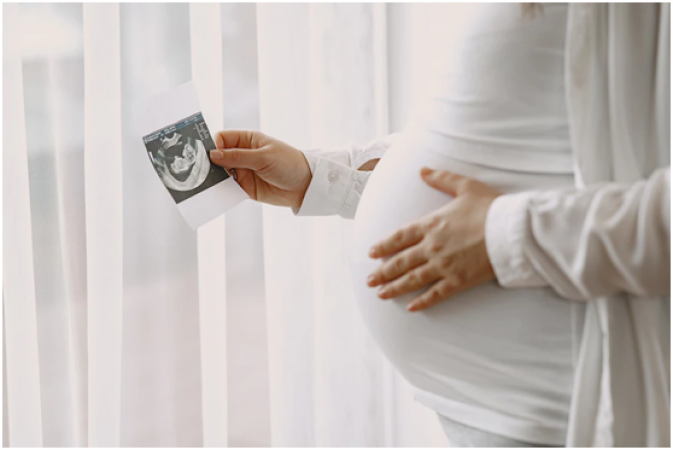
Starting the In Vitro Fertilization (IVF) treatment process can be thrilling and terrifying.
In most cases, you've been trying to conceive for months or, more likely, years. This isn't always the case, though. IVF is sometimes the first treatment tried.
According to Dr. Hrishikesh Pai, Mumbai's leading IVF specialist, one clinic's protocol may differ slightly from another, and treatments are based on individual needs.
If a gestational carrier is required, an egg donor is used, or the fallopian tubes are blocked, IVF may be the first option.
Even in these cases, IVF may be necessary after years of trying to conceive and multiple fertility tests.
But don't be concerned; the better you understand the process, the more in the command you'll feel.
IVF typically entails retrieving many eggs using a transvaginal ultrasound-guided needle and placing them in a petri dish with specially prepared sperm cells.
Some of the retrieved eggs will be fertilized by the sperm cells and develop into embryos if everything goes well.
One or two of those healthy embryos will be implanted in your womb.
According to Dr. Hrishikesh Pai, a renowned infertility specialist, the sperm cells may require additional assistance during the fertilization process in some cases.
Intracytoplasmic sperm injection (ICSI) is an assisted reproductive technology that involves injecting a single sperm cell into an egg.
This may be done, for example, in cases of severe male infertility or if previous IVF cycles failed at the fertilization stage.
The ovaries must be stimulated before eggs can be extracted. Your body will typically only mature one (or possibly two) eggs per month if you don't use fertility drugs.
IVF is a remarkably successful procedure. Repeated treatment cycles may give you the best chance of success. It is suggested that you have at least 2-3.
One positive result is that IVF is generally safe when performed by trained professionals in accredited facilities. It's crucial to talk to your doctor about your likely outcomes.
The day you get your period is the first official day of your treatment cycle. Your doctor will most likely order blood tests and an ultrasound on the second day of your period.
These first-day ultrasounds and blood tests serve as a baseline for your blood work and ultrasound. These tests are usually acceptable. If everything appears to be in order, the treatment will continue.
Keeping track of the cycle
Your doctor will keep an eye on the follicles' growth and development during ovarian stimulation. It's critical to keep track of the cycle.
A process may be canceled if ovulation occurs before retrieval, though this is uncommon. The eggs cannot be retrieved once they have ovulated on their own.
Your doctor will most likely advise you to avoid sexual activity.
A light sedative is administered before the retrieval to help you "sleep" through the procedure.
The aspirated follicles will be searched for oocytes or eggs while you recover from the retrieval. Within 12 to 24 hours, the oocytes must be fertilized.
When the semen sample is ready, it will go through a unique washing process before being placed in each culture dish with an oocyte and kept in a special incubator with the "best-looking sperm."
They are checked for signs of fertilization after 12 to 24 hours.
The embryo transfer
An embryologist will use a microscope to visually identify the healthiest-looking embryos three to five days after retrieval, but genetic screening may be required in some cases.
Preimplantation genetic diagnosis (PGD) or genetic screening is this (PGS). Day five embryos are preferred for PGD.
Embryos are sometimes frozen during PGD/PGS, and transfer is postponed until the next cycle.
A thin tube called a catheter will be passed through your cervix during the embryo transfer. The embryos will be transferred along with a small amount of fluid.
The number of embryos transferred will depend on the quality of the embryos and the discussion with your doctor, according to Dr. Hrishikesh Pai of Babies and Us IVF and ICSI Centre in Mumbai. The most common method is to transfer two embryos.
You'll begin taking progesterone supplements as progesterone in oil, pill, vaginal gel, or vaginal suppository on or after the day of your retrieval and before the embryo transfer.
A pregnancy test is performed about a week to 12 days after the embryo transfer. After the transfer, there is a two-week wait. If you have any questions, consult your doctor, but you must first wait to see pregnant.
The results of the tests

If the test is positive, you may need to continue taking progesterone supplements for several weeks, with blood tests and ultrasounds necessary to monitor the pregnancy.
If you get a negative pregnancy test 12 to 14 days after the transfer, your doctor will tell you to stop taking the progesterone.
After that, you'll have to wait for your period to begin. If this was your first cycle, you might want to try again. Remember that after you've completed several cycles, you'll have the best chance of succeeding.
Last but not least
"The bottom line is that a failed treatment cycle is never easy to deal with. Although heartbreaking, it's important to remember that just because one process failed doesn't mean you won't succeed if you try again, "According to Dr. Hrishikesh Pai of Babies and Us IVF and ICSI Centre in Mumbai, an expert IVF doctor.
When you try again, make sure you follow the steps you take if a treatment cycle fails.
When should you think about donating your eggs? - Dr. Hrishikesh Pai
Study finds a gene could prevent Parkinson's disease
These fruits will make the teeth strong, start consuming it from today.